For ordinary folks, horses either appear as these gracefully grand beasts or as some tall klutz. There is no in-between, so it’s only natural to want to find out whether or not horses are dumb, or are they smart.
Horses have many qualities that point toward being intelligent animals despite the many seemingly dumb things that they do. However, researchers haven’t been able to properly quantify the intellect of horses as the measure of intelligence that we use is primarily anthropomorphized.
Unfortunately, the real meat of whether or not there’s some intellect beyond those glossy, googly eyes is further down. The idea of figuring out the mental capabilities of our equine friends is froth with sugar cubes and chocolate bits. There’s a lot of confusion and misinformation. That’s why your enthusiastic self needs to read on and find the elusive answer for yourself.
What Is Animal Intelligence?
Intelligence is an animal’s capability to take in information and show some form of practical reasoning through a situation.
This simple breakdown becomes increasingly challenging to measure and compare from one animal to the next since each animal has its unique strengths and characteristics.
As you’re probably aware, horses are prey animals, but they’ve managed to survive just fine out in nature. They’ve had to trust solely on their wits, unable to depend on any particular defensive mechanisms.
This is a form of intelligence, but when we use the human standards of measuring aptitude, it becomes quite troublesome to come to a decisive conclusion. This difficulty in measuring the intelligence of other species makes sense since our current measures of intelligence, like SAT scores and IQ tests, fall so woefully short.
That’s why, when attempting to uncover the truth behind a horse’s long-fabled intelligence, it’s essential to investigate whether or not any show of awareness is by design or human intervention.
Are Horses Smart?
Researchers typically look for three main things when studying animal intelligence: self-awareness, self-control, and memory. These three objects of investigation are the smarts in their most basic form, and horses appear capable of displaying some of these qualities of intelligence.
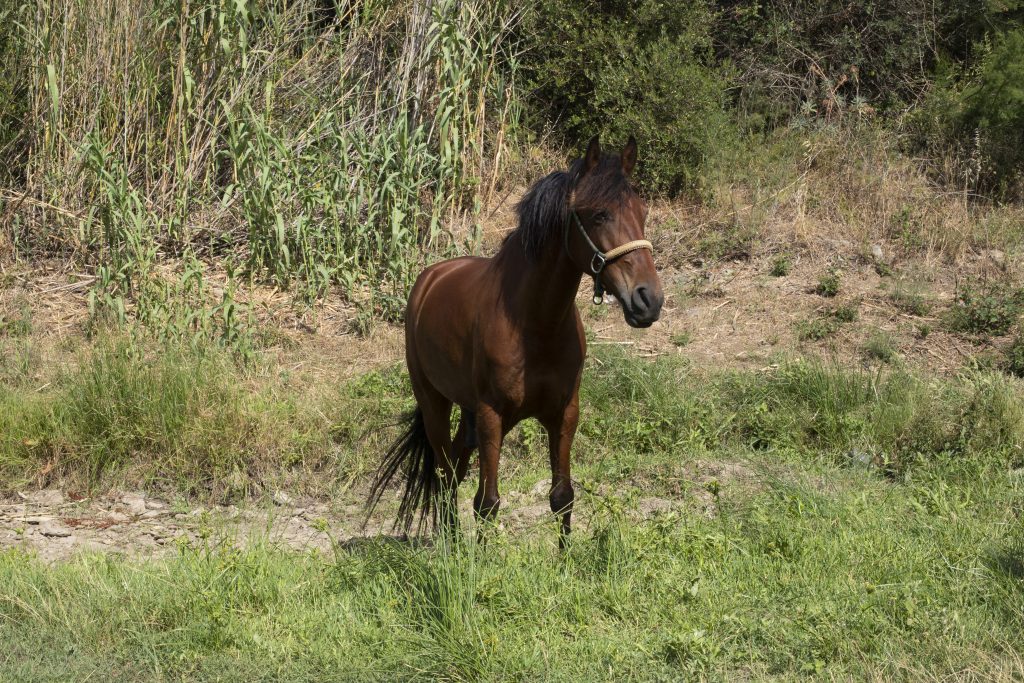
To get a grasp of animal intelligence, researchers typically rely on two prominent tests that give a rough idea of an animal’s ability to accumulate knowledge that it can digest and understand — cognition. These tests are the infamous “pointing test” and “mirror test.”
Examiners use these testing tools to gauge the animal’s ability against control, which would be humans. This is because babies can pass these tests at a very young age. To understand the relevance of these tests, you first need to get a general understanding of what they are.
The “mirror test” is used to analyze an animal’s self-awareness by placing a, you guessed it, mirror in front of the test subject. Investigators place a blemish on the subject’s forehead or wherever the animal can see the mark. If the examinee can tell that it’s a reflection of themselves, they’ll often try to find a way to remove the mark.
Passing this test proves that the animal has cognitive abilities in some form or another. When researchers placed a large mirror in their training area, horses could pass this test, and studies drew a cross on their cheeks. They spent a couple of minutes trying to scratch the mark off.
These results were also tested using an invisible mark in the form of ultrasound gel. Scientists did this ultrasound gel testing to see if it was instinctual for the horses to scratch their faces after being touched or marked. But, they only spent time trying to remove the mark when they could see it in the mirror.
While in the “pointing test,” an animal is tested on their self-control—an animal’s capability to receive and act on new information is also tested.
For this test, the subject is trained to look and expect food in a particular spot. Then the food is moved to a different place where the examiner will point. The animal passes only if it takes and processes the new information and goes to search for food in the newly instructed area.
Again, horses excelled in this test. They could recognize that the pointing gesture was a form of communication. Through their recognition, they were able to break it down that the testers were pointing them to the new location of their meal. Like anyone doing such big-brain work, it motivated them to follow through and pass the test.
How Smart Are Horses, Really?
Horses have proven themselves to be quite bright without delving into being nitpicky about the choice of words. Their ability to learn and be trained shows astonishing mental capacity.
Even more flattering for them, their exceptional learning ability is further enhanced when training methods match individual mental abilities.
Horses have been demonstrated to be able to grasp concepts like the idea of different sizes and how to discriminate between them.
Through positive reinforcements, examiners can teach a horse the concept of “largest.” By being trained to pick the largest object out of a line of different-sized objects, researchers can test a horse to see if it grasped the concept being taught.
This is checked by introducing new types of objects to choose the largest out of the set. Suppose the horse can understand and categorize the differences and similarities in the objects. In that case, it can always pick the largest out of the bunch.
This is higher-order cognitive functioning, which an animal with simple, base-level intellect wouldn’t be able to grasp regardless of the amount of effort put into teaching them.
This advanced level of problem-solving can also help the horse with recall further down the line because of its efficiency. This is because the horse can now opt to learn the rule instead for future tests instead of memorizing each object.
Horses have also shown that they can learn more than a single concept; they can learn the concept of smaller versus larger and open and closed.
They can even take this knowledge and build on it to use it in different situations. They can remember concepts they’ve learned years later without revision or issue.
Are Horses Aware Of Us And Other Horses?
Knowing that horses appear capable of doing excellent brain work, it’s only natural to want to learn what they know about each other and their doting humans.
Studies show that horses have a high awareness of other horses and high social cognition levels. Their brains can receive, process, and recall information regarding their equine family.
Horses are herding animals and need to know where they and others stand in rank and status in their communities. This is all part of their ecosystem as this knowledge helps make interactions smoother and more efficient.
Horses also need to know all of this information in addition to their role and tasks in the group, and they need to have this information for both the short and long term.
It’s also been shown that stallions can make out and find their mares out of a large group of other mares even after a long time of being apart. Now that’s true love you can never say “neigh” to. No? Okay, I’ll see myself out.
Horses have also demonstrated an ability to discriminate between different horse calls they socialize with, are familiar with, or are completely unfamiliar with. They demonstrate heightened alertness when they don’t recognize the whinnying.
Horses are also extremely capable of using this social cognition across species, which means with us. They can be trained to tell people apart from just photographs and even tell apart those twins you haven’t been quite able to so yourself.
Although horses have proven to be more adept at reading visual hints, they can also distinguish different people’s voices. In all, horses are well aware of you and are possibly counting the days until their hands grow in so they can braid your hair.
Examples Of Horse Intelligence

In various instances, horses have shown that they have the brain to back up all that beauty and brawn. Among many other feats, a horse’s most essential display of perception is its ability to display play and respond to prompts and commands.
1. Opening Gates
Horses have been known to fidget, learn, and execute, opening the gates to their enclosures. This is probably one of the most widely known phenomena that cause both giggles and frustration. Once a horse learns how to work a gate’s latch, it’ll probably not forget.
2. Emotional Comforter
Owner’s going through emotional turmoil have reported that their horses were able to tell, and they approached to comfort them. Some horses are even aware enough to provide physical contact by wrapping their necks around their owners as a form of a hug.
3. Pattern Recognition
Mounts have also shown an ability to recognize patterns and go even further by remembering these patterns for a reliable period. Different horse breeds also show varying levels of memory and learning speed.
More importantly for horse parents and lovers, this skill does translate to your horse recognizing you and remembering your face, just like dogs remember scents for a long time. So, your horse baby will remember you for a long time.
4. Body Language Perception
Horses are excellent readers of body language. One of those well-known instances of this skill can be seen in the curious case of Clever Hans. The horse became famous for being able to count, tell time, and even make changes.
However, this turned out that Cleaver Hans was extraordinarily reading and responding to the body language of his owner. Now that this is known, horses have even been observed being able to read humans they aren’t bonded with and have never met before.
5. Use Of “Tools”
Another remarkable observation that’s been made is that horses know when and where to seek means to help ease their pain. This is even more impressive in the wild as their pharmacy is nature itself, and they need to know what works for what.
And they know what works as they seek out willow stems with the makeup we use to make aspirin.
6. Avoiding Work
Horses have been known to utilize tricks to get out of hard work. People can sometimes misinterpret this cunning nature as the horse being dumb. Still, when you know what’s going on, it’s pretty calculating, and you know that your horse would call in sick if you gave it a phone service plan.
7. Excellent Communicators
Horses are excellent communicators even when the communication isn’t direct. They have built and evolved easily recognizable behavior to convey whatever they need to to stay healthy and survive.
Owners can then learn these communicative mannerisms for them to be able to get ahead of diagnosing medical issues, assessing the horse’s emotions, and even when the horse is agitated and might cause harm. On top of all this, trainers can teach horses other communication cues to get across what they need.
7. Great Memory
Horses have often been shown to possess exceptional faculty for remembering and recalling things in the short term. They have also proven themselves to have significant long-term memory ranging from two to ten years.
They also appear to have a talent for spatial memory, which checks out since you can’t have a horse getting lost the entire time.
Are Horses Dumb?
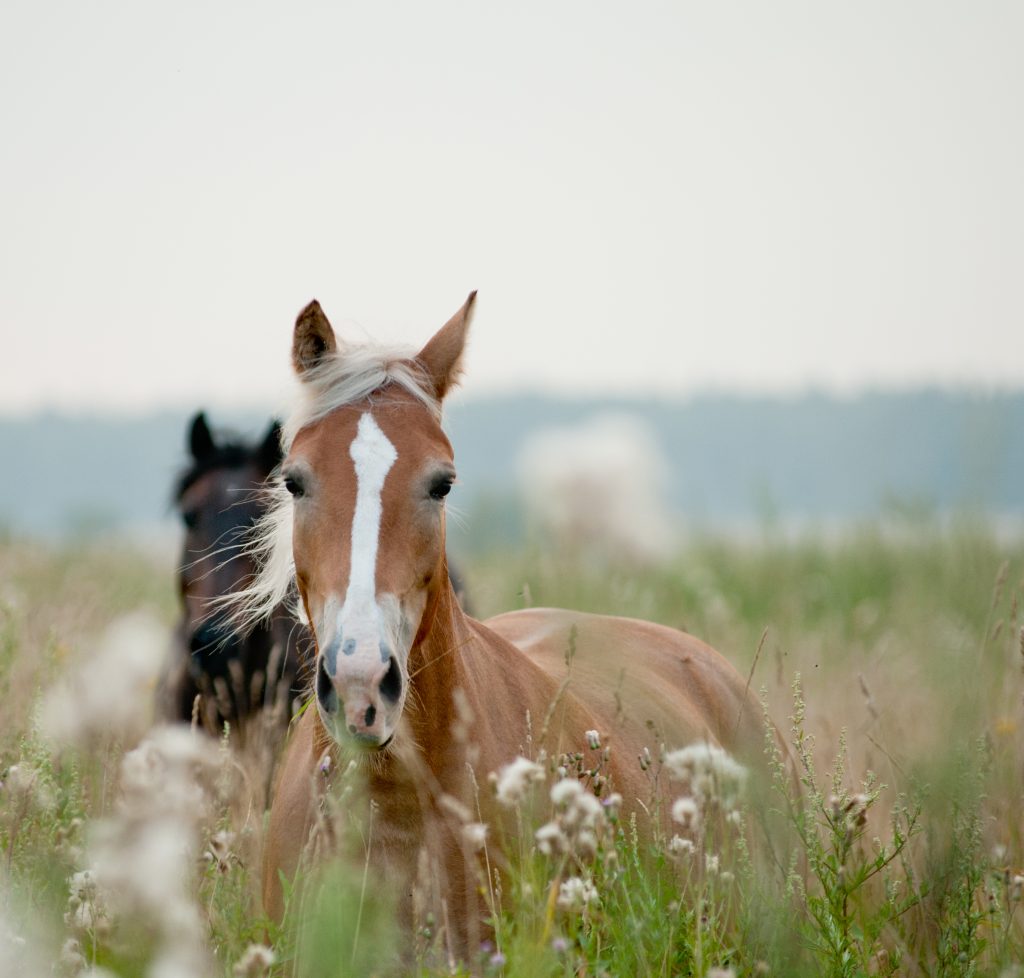
Firstly, the scoping of intelligence is too human-centric to be able to conclude anything in favor of or against the cognitive capabilities of horses. We can’t transfer most measures of intelligence we currently use to horses to get an accurate read of whether a horse is smart or dumb.
In this sense, we can’t really transfer the word “smart” or “intelligent” to horses to give the same sentiment that the words mean when used on humans. Therefore, this entire premise is flawed and should only be seriously speculated when you’re horsing around—bucket list checked, this was a dream sentence right here; darn, I should have saved it for the conclusion.
When people use “intelligent” in horses to describe ponies, light breeds, some American breeds, and breeds such as the Turkoman, Akhal-Teke, or the Tartar, they are often or typically referring to how well a horse takes to being trained.
This is to say that horse owners are talking about how quickly a horse takes to receive and execute commands, relaying its current state of well-being. However, this situation is more along the lines of mechanization, as anyone can execute commands without thinking about them. In this sense, horses are as intelligent as those rudimentary robotic toys or as “dumb” as smart refrigerators.
This is because a device with simple or even intricate code isn’t a show of sentience, and repetition and habit aren’t necessarily a show of intelligence.
For instance, when a horse opens a stable door, it’s because it’s played with the latch enough times to eventually learn the correct position that rewards its efforts with sweet freedom and cheeky defiance.
Through this sort of repetition, habits build and stack, which is why horses can respond dynamically in situations that appear more complex than anything they’ve been taught, but that’s just the animal creating a new neurological path from previously existing experiences, instincts, and training.
Their ability to make narrow evasions from predators through wild biting, bucking, rearing up, and the infamous kicking only shows that they have as much capacity for intelligence as the last pardoned Thanksgiving turkey. We all know how it faired for the rest of its kin.
It is, however, also fair to note that a horse can sometimes be relegated to being “slow” or “dull” simply by not responding well to a handler’s instruction. This is not a reflection on the horse’s noggin’ power and more on a training technique that’s not well-suited for that specific horse.
As tempting as it is to label whether horses are smart or dumb, it is impractical. Horses are curious, and that in itself proves them competent in their ways.
Horses Do The Dumbest Things
As you can see, horses aren’t dumb and appear exceptionally smart. Despite this fact, horses continue receiving bad press, and that’s due to some suspiciously dense tendencies and enlisting just a few of them is enough to raise an eyebrow.
1. Easily Spooked
One of the funniest things and dumbest things that horses do is being spooked by the sound of a closing car door. For people without an anxiety disorder, this seems utterly foolish. Still, it is, in fact, a survival mechanism that’s pretty smart for a prey animal that doesn’t know when a predator might jump out from around the corner.
2. Running Into Fences
Some horses have the odd tendency of squaring off with fences or attempting to nimble on electric fences. These acts appear to be cases of curiosity, lapses of judgment, and, at worst, dumbness showing its hand.
3. Rolling In The Dirt
Horses seem to enjoy rolling out in the dirt after being given a cleaning. Still, this questionable behavior is said to be a way of regulating the horse’s body temperature and counter-intuitively putting the final touches and conditioning their coat.
Intelligence Vs. Mechanization In Horses
We don’t have to rehash the meaning of intelligence because you’ve probably read the word in this article enough to last you an entire work week. On the other hand, mechanization was only thrown in as an easter egg.
Mechanization is an animal’s automatic response to stimuli in different environments. In horses, this could be something that a horse does by design, even if there’s no need or threat.
Mechanization is yet another factor that clearly shows that the attribution of intelligence to horses is often a way for us to attribute the familial word of intelligence to horses as our way of trying to find similarities between horses and us.
With all that’s said, it is maybe a bit more fitting to talk about habits instead of horse smarts or dumbness.
Are Horse Habits By Nature Or Instruction?
In snapshots, wild horses can pull off spectacular poses and maneuvers that seem too graceful not to have been taught. This is why some assume these habits are intrinsic and that these horses wouldn’t require any teaching.
However, these are rare instances of genius because tamed horses require sessions of practice and refinement to be able to land all their tricks at all times. Over many lessons, the horses will be able to learn how to pick up on their instructor’s cues for commands.
This is to say that many of the fantastic and genius things you see domesticated horses do are through intensive practice or through lots of practice and trial and error to appease their curiosity.
All of these wonders that horses do should prove that their brains can learn and store information like any other animal. A lot of the things that impress us about horses go against their nature as they’ve evolved to run away from predators instead of interacting and learning from them, so don’t judge them too much when their evolutionary tendencies kick in.
If Horses Can Think, Do They Have Consciousness?
Consciousness is a dubious concept. Scientists haven’t even been able to properly define and grasp the idea of consciousness in humans. However, it’s also an interesting question to ask ourselves when dealing with other animals, such as horses.
To tap into the Clever Hans well again, this is a prime subject to study to peek deeper into a horse’s psyche. Clever Hans may not have been a mathematical genius, but he was maybe wiser because he was so in tune with our shared wiring for bonding with other people and species that he could make out the subtlest cues in people asking him for tax advice.
When it comes down to it, people are mating animals like horses, but we often fail to read each other’s signals for what we want or mean. In that sense, horses appear to have as much consciousness as we do.
Do All Horses Have The Same Ability To Learn?
This is similar to asking if all humans have the same ability to learn. The response is an Oprah Winfrey yes, with a plush “but.” All horses have the capacity to learn, but not all horses learn at the same pace and through the same methods.
However, even in learning, there are certain trainability tendencies that handlers look for and can often use as a measure of intelligence. Every horse can learn but not from every handler.
Conclusion
We can’t quantify intelligence, and we can’t use the same measures across species. Like the entire Equidae family, horses are fight-or-flight animals. Horses can’t use their dynamic response to different situations to prove much, whether they manifest as befuddling or clever to our eyes.
A horse’s ability to take on training shouldn’t be confused with the horse’s capabilities because this is similar to pitting someone with mobility issues against someone without in a leg race. You can’t get accurate readings of either party’s abilities, so you have to tailor your search terms and accept that everyone has their strengths, hopefully enough.
Resources
https://www.theatlantic.com/education/archive/2015/02/what-animals-teach-us-about-measuring-intelligence/386330/
https://www.britannica.com/animal/horse/Behaviour
https://www.psychologytoday.com/za/blog/horse-brain-human-brain/202110/horses-nature-or-instruction
https://www.nationalgeographic.com/animals/article/151129-ngbooktalk-horse-history-animal-intelligence-wendy-williams
https://www.horseillustrated.com/horse-training-learning-ability-in-horses-82
https://www.researchgate.net/publication/270570489_Equine_Cognition_How_intelligent_are_horses
https://www.npr.org/sections/13.7/2017/01/12/509451392/how-smart-are-horses
https://4-h.org/wp-content/uploads/2016/02/UnderstandingHorseBehavior.pdf
https://vault.si.com/vault/1955/10/03/the-question-do-race-horses-have-intelligence
https://www.horsetalk.co.nz/2015/02/20/smart-horse/
https://www.horsetalk.co.nz/2017/12/25/horses-smart-humans/

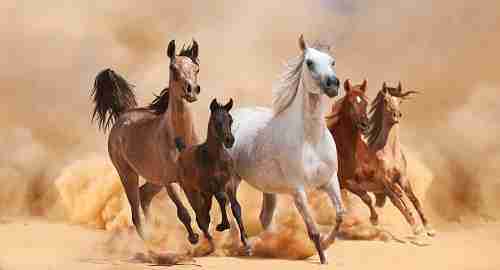




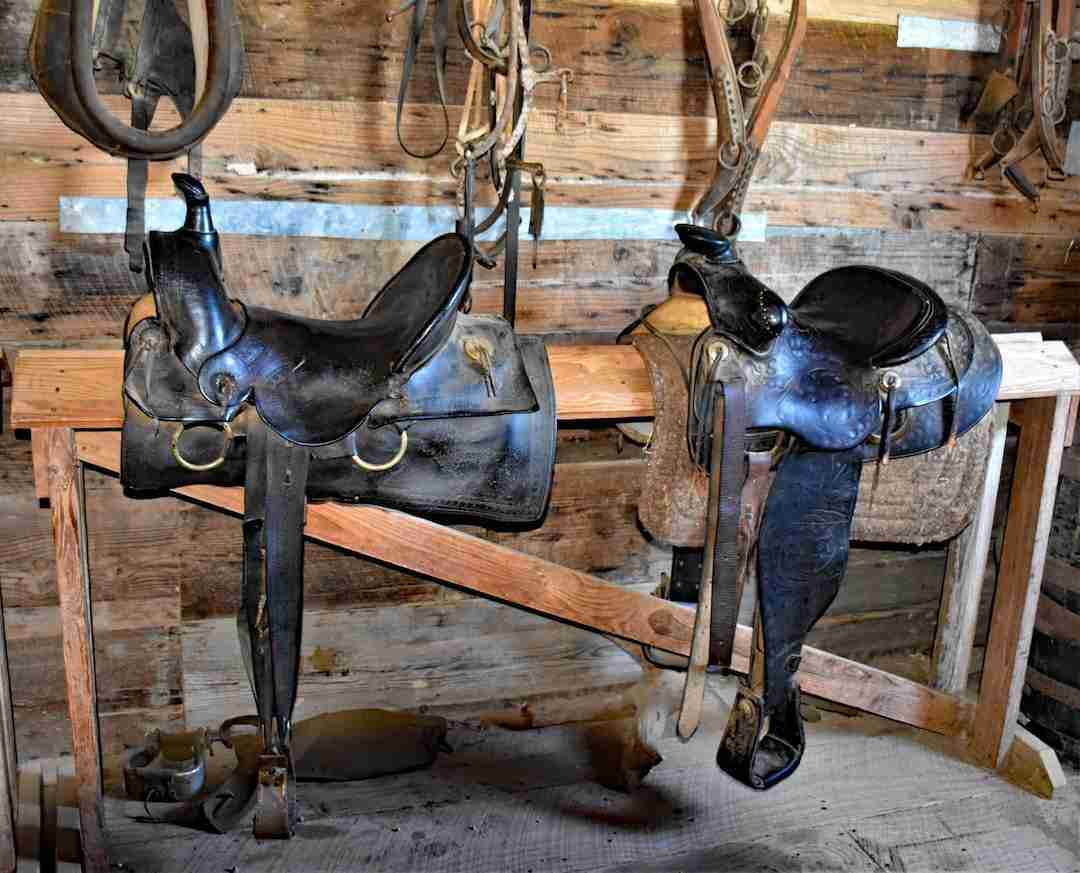

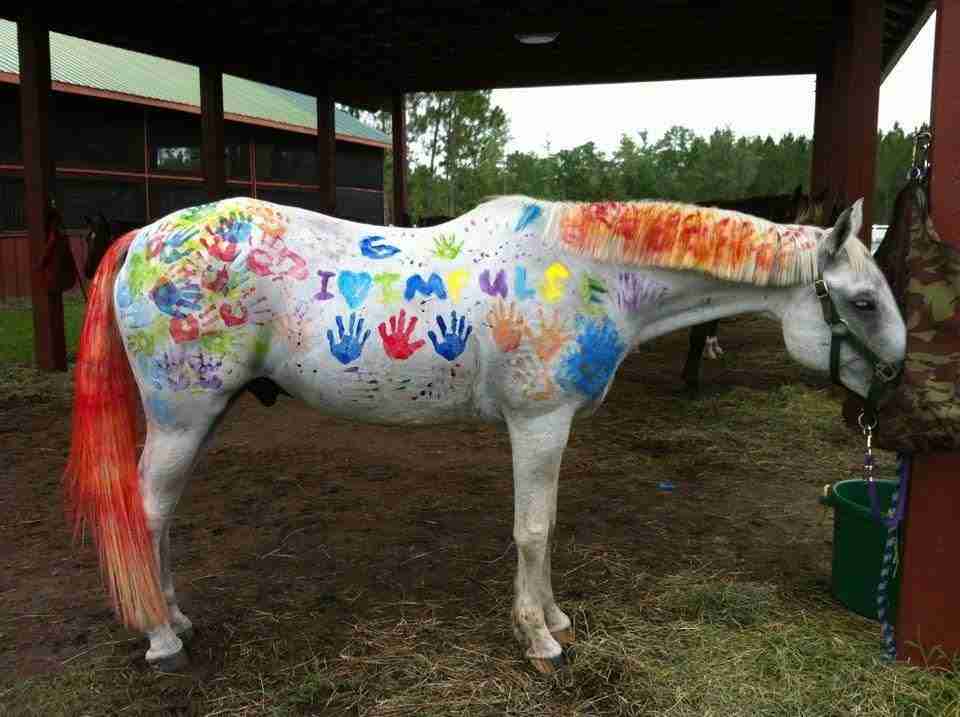
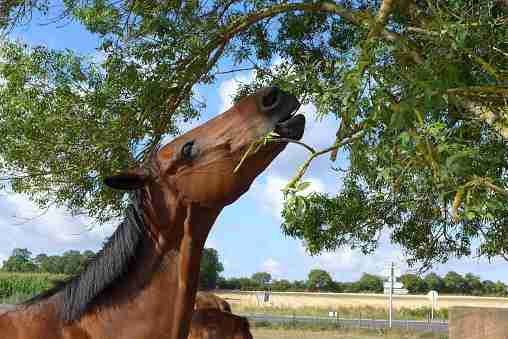
Long story by horse lovers to admit horses are dumb my nature. I’ve trained my cat better to respond to commands.
Yes, but how many horses have you trained?